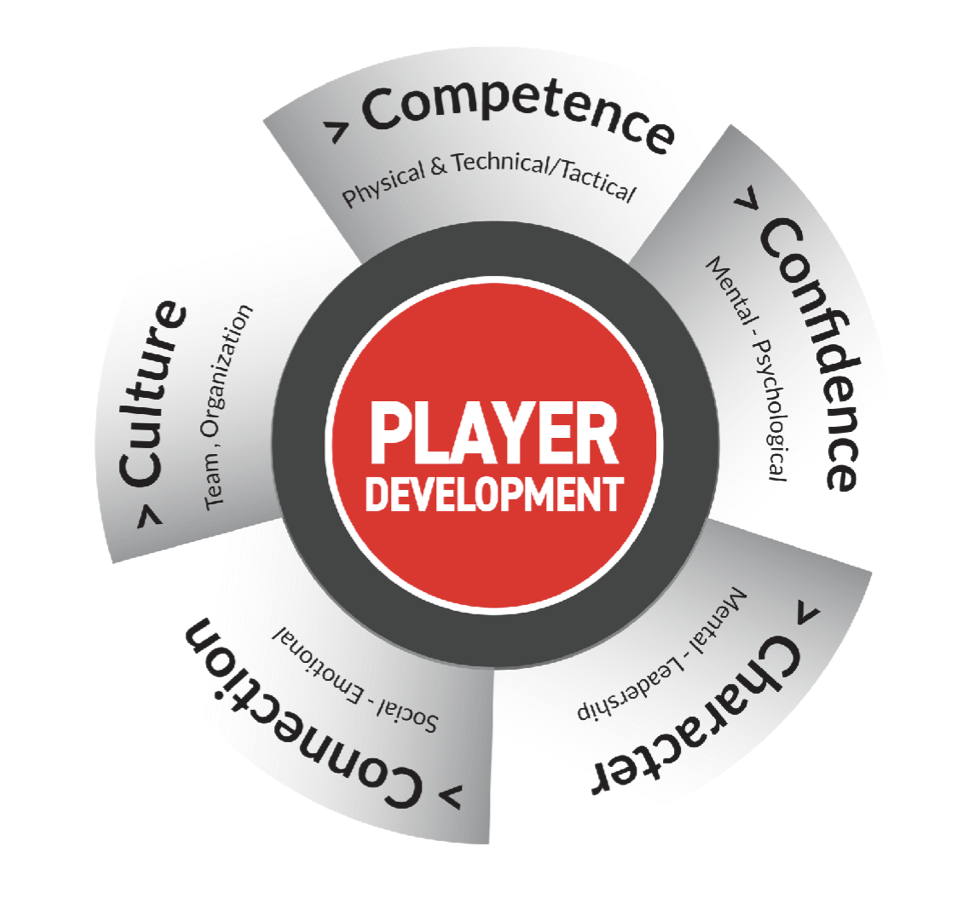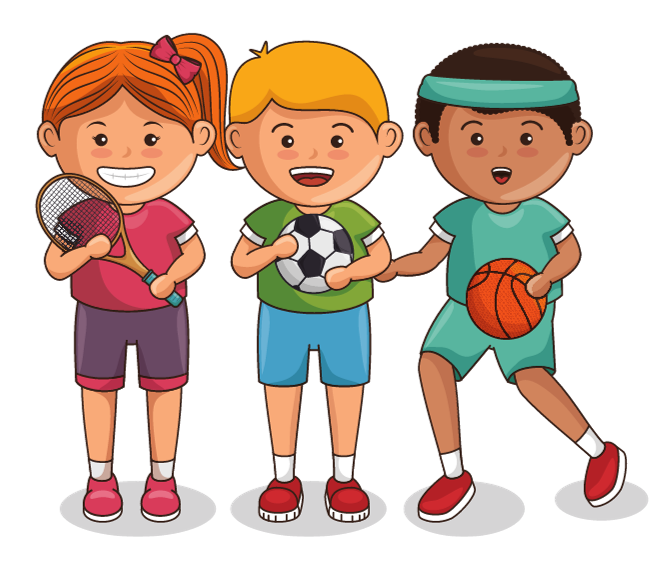Be in control of your Development
Understand Player Development & Your Role In It
Player development is about developing great players and great human beings.
It is the process of finishing the season better than you started through a mutually agreed upon development criterion, regardless of participation or high-performance pathway. Criteria that extend beyond just technical and tactical competence.
While players and parents are normally left out of the development process, they shouldn’t be. It is essential that both player and parent understand their roles and responsibility in the development process and their sports journey.
5C Framework
Traditionally, the primary focus of development has been centered around physical and technical/tactical competence.
- Physical indicators include determinants like speed, strength, power, and endurance.
- Technical/tactical indicators include things like sport-specific skills such as volleying, forehand, putting, and throwing.
However, there are four additional development criteria that play an equally important role in maximizing the coach and player’s potential; confidence, character, connection, and culture.
These components are broken down into the 5C framework, which provides guidelines on appropriate age and stage development.

Player development is about fostering personal and athletic growth in individuals, helping players improve and reach their full potential, both on and off the field. It is a collaborative process that involves coaches, players, and parents working together towards a shared goal.
By embracing a holistic approach that takes into account technical and tactical skills as well as personal development, we can help players become not just great athletes, but also great human beings. It’s important for players and parents to understand their roles and responsibilities in this process, as they are crucial partners in helping athletes achieve their best.
We support players & parents:
- Help players understand the pathway and their development opportunities through sports
- Help parents understand the value of following the framework to best support their player’s development opportunity
- Support the discussions with their club on providing age and stage-appropriate training
Parent & Player Development Courses
We’ve designed development courses for:

Parents who want to enhance their role as a supportive and engaged parent in their child’s development in sports

Players who want to embark on a journey to enhance their skills and knowledge in sports
‘I was fortunate to be able to take in Matt Young’s Coach Development Workshop. It was a fantastic session. The premise was on people and how to work together with all participants to be successful. This type of workshop is long overdue in our soccer world. There was a lot of content to go over, but it was all manageable as we were also given access to take the course online. I learn at a different pace than others. I really appreciate the ability to revisit this content when it works best for me. This workshop would benefit the brand-new coach as well as the seasoned old dog like myself… Thank you Matt for taking the time to come to Saskatchewan.’
Jeff Humm
Track Player Development
Born from a longstanding gap in athlete development, we’re shifting the focus from sport outcomes to the player’s development process Powered by data, we put holistic development data directly into players, parents, coaches, and sport organizations’ hands. With this, they can measure progress, identify opportunities & inform decision-making.
- Players: The Personal Sport Record is your LinkedIn for sport & recreation. A central location for your athletic accomplishments to reflect on, use to improve, or share with others.
- Parents: You’ll have development progress at your fingertips. No more operating in the dark. You’ll understand how your child is progressing and how you can support their development.
- Coaches: With digital access to all of your athletes & teams, we make it easy to track their development and review against their baseline testing.
Because what gets measured, becomes what matters.
